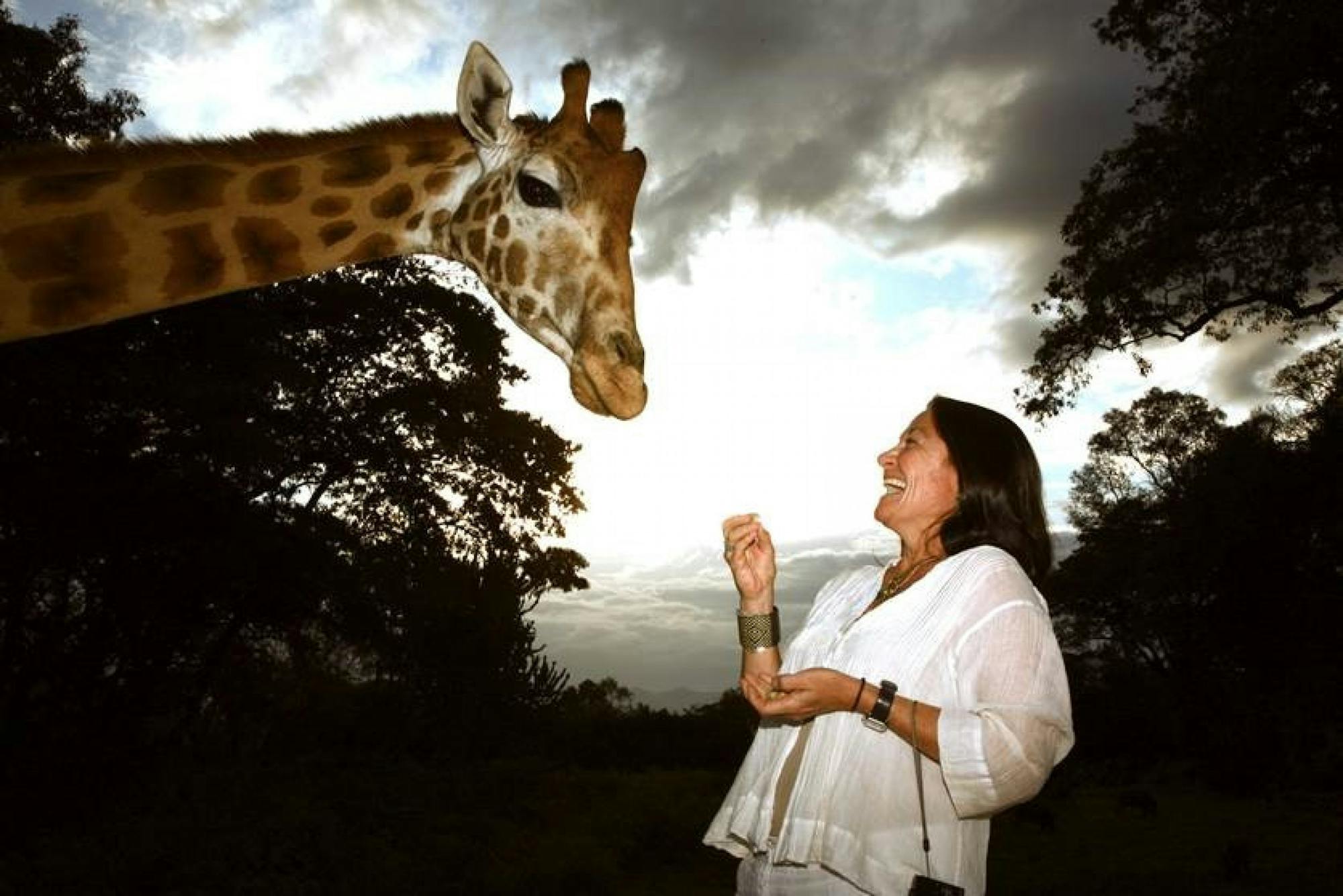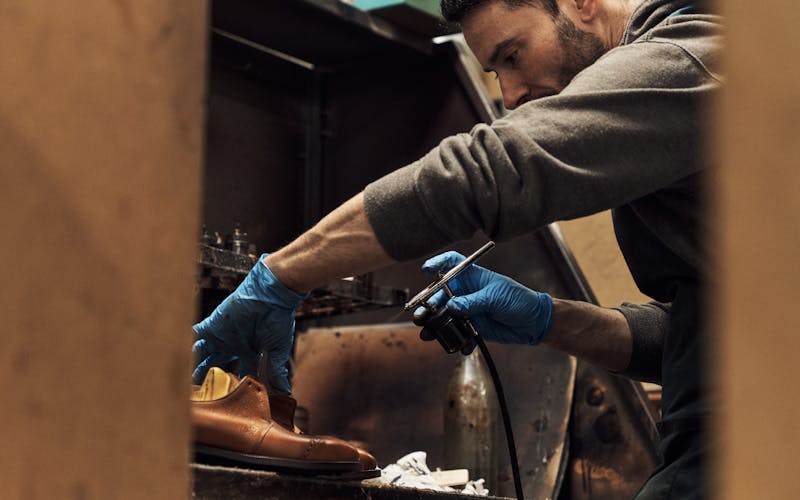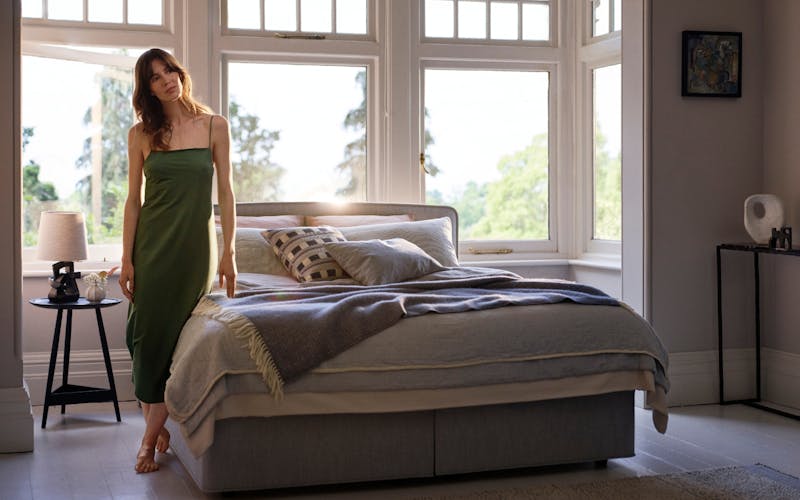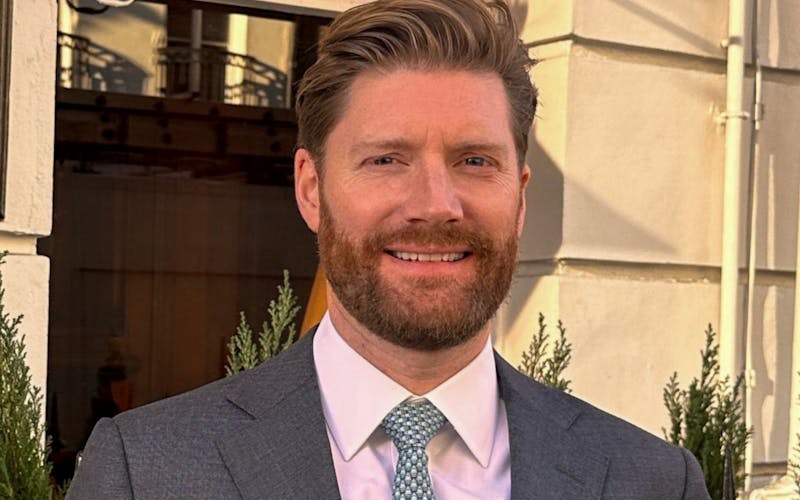

for Walpole members and
non-members available now
at The Londoner



Tell us about your typical day
Pre-Covid, I was like a hamster on a wheel: endlessly dashing from meetings to the office, trying to fit in lunches to PR appointments between editing and writing, and then hurrying to a dinner or hauling my suitcase to Heathrow to catch a flight. For the past year, for the first time in my career, I’ve felt in control of my own time. My days now start with an online yoga class and an hour’s walk, with my flask of espresso and music. Then, after eight hours of writing, editing and occasional Zoom or Webinar, the records go on and the cocktail glasses come out. I’m a pretty skilled bartender now: my new lockdown skill.
What inspires you and your writing?
Greed. I’m a journalist because I’m always hungry to know what’s going on in the world – whether that’s volcanoes erupting in Iceland or artists making beautiful items or people discovering interesting things. My grandpa called me “Little Miss Why”: I’ve always wanted to know about stuff, and how it works, and why.
What does your role at Times Luxx entail?
I’m Luxx’s handywoman. I come up with ideas, commission writers, liaise with designers about shoots, write features, edit all the copy, come up with headlines and standfirsts, and then proofread the entire issue. As travel editor, I also write one big travel feature per issue, and the hotels page. I love it because it’s so varied: one minute I’m talking philosophy with Hugo Rifkind, the next rejigging the flatplan, or discussing photographs for the motoring page. When the issue’s gone to press, I then head off to the wilds somewhere, to track tigers, or meet explorers, or spend days with a remote tribe for the paper, or other magazines I contribute to.
As the magazine’s travel editor, what do you see as the future of travel post-Covid?
I’m an optimist. So I hope that this enforced period of lockdown has given people time to reflect on the impact of where and how they travel. Humans are never going to stop exploring. But given the impact of climate change, we all now know we have to start to do so in ways that are less damaging. That might mean travelling by electric car or train, and walking and bicycling more. And when we get there, picking hotels that create positive change rather than cause harm, and booking through organisations that understand their destinations and give back to its people and cultures.
The days of bling and conspicuous consumption in faceless international-style hotels, I think, are over.
I hope holidays in the luxury market will now focus on privacy, safety, adventure and giving back – for instance, staying on a private island with good community and conservation outreach projects, and philanthropic activities that are educational. Or going on safaris that actively help save elephants. Or taking part in cooking classes with local women whose skills have been passed through generations. Travel that’s more authentic, less bland – and more about giving rather than taking.
Tell us what aspect of luxury you’ll be focusing on in your regular Walpole columns – and why?
Craftsmanship. For too long in the luxury world we’ve focused on brands, rather than the brilliant people who make beautiful one-off pieces. I hope to introduce the Walpole audience to leading British craftsmen – both modern and traditional – who make some of the most beautiful handmade items in the world. I can’t wait to start: to watch shoes being made from scratch, to see glassmakers turn sand into decanters, and to admire raw clay being moulded into fine porcelain chandeliers.
Britain is known for its artists, its artisans, its craftsmen and consumers’ appetite during lockdown for unique, one-off pieces has given many crafts a bit of a boost.
I hope to bring them to the fore so they can be rightly celebrated.
What does British luxury mean to you?
Products and services that are rooted in our history, our culture and the sorts of people we are.
It’s hard not to associate luxury in Britain with our history.
Much of what’s special about the country is what’s been left behind or passed on, whether that’s physical things such as grand architecture and masterful art, or skills that have been honed over the centuries, such as tailoring or silversmithing or sculpting. Some things we do well because we’ve refined them over generations. They’ve been perfected and don’t need to be messed with. Take the cream tea, for instance. Or a good shoe. Or a Savile Row jacket. There’s also a lack of fuss, and an honesty and integrity to British luxury products. And a sense that the makers couldn’t do anything more to improve them or embellish them: that their products are simple but the best.
What do you see as the future of luxury?
People investing in fewer, but far better, items that make their lives not only more pleasurable but simpler; cherishing items that are one-offs; and caring about the provenance of what they own.
No one wants to live in a house, or wear clothes, or drink or eat in places that enslave others or pollute our planet.
So the ethics of the companies we buy from will matter. In an age where so much is bought online, the way things are delivered will be more important, too. No one wants a beautiful luxury item to be wrapped in plastic and couriered by an underpaid man in a diesel van.
What was your big break?
Winning the main journalism prize at university in South Africa. My reward was a job at The Star, which was then the best newspaper in the country. I was thrown straight into a tough newsroom and out into the exploding townships, with my notebook and black-and-white film camera. It was a pretty steep learning curve, but felt thrilling.
In a parallel life, what would you be doing?
Crossing deserts by camel and horse like a female Lawrence of Arabia. I’d also speak numerous languages, be able to paint and sing, and play the piano like Richter. I can dream…
What’s your favourite luxury under £10?
A piece of home-made bread, with a slab of cold salted butter, and dollop of home-made Blood Orange marmalade. Or a big bunch of mixed sweet-peas from Gordon Castle’s farm shop. If I lived closer, I’d buy them every week: that smell…
www.thetimes.co.uk





